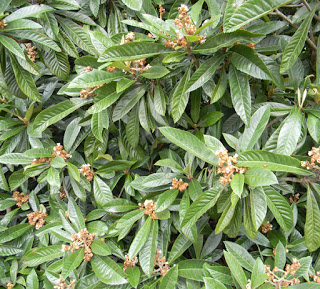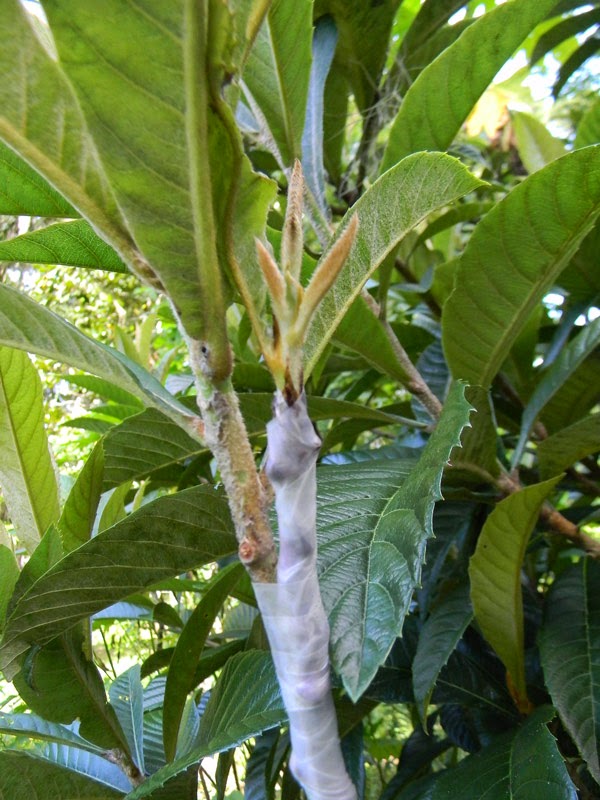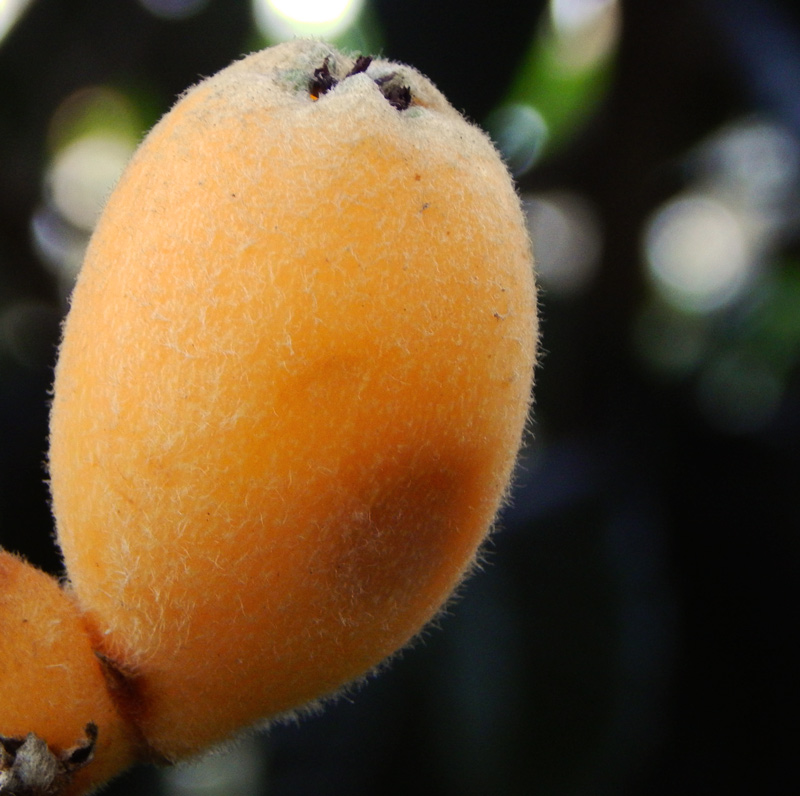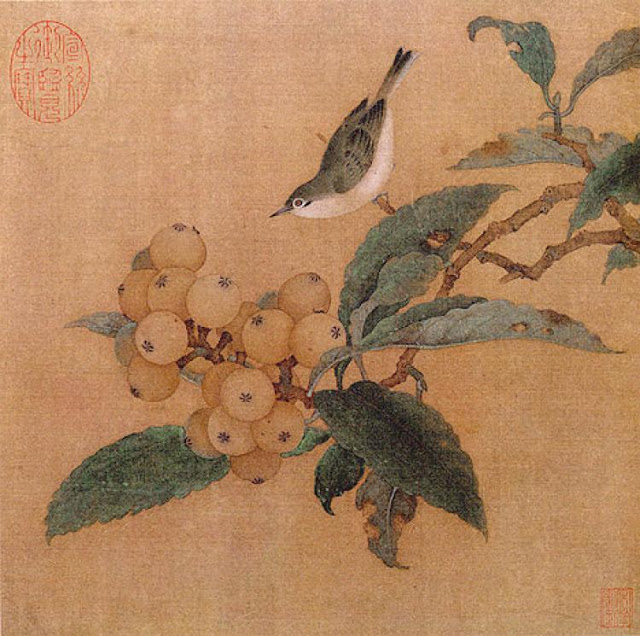We’re getting some early loquat fruit this year – and I’m quit happy.
One of the main problems with growing loquat trees in my climate is the tree’s winter blooming habit.

Frost? Naw, don’t believe in it. It’s bloom time!
This wouldn’t be a problem if it wasn’t for our occasional freezes.
Loquat blooms can’t handle freezing temperatures. The tree does fine down into the teens – but the blooms will freeze right off, and with them, your hopes for that year’s loquat harvest.
There are solutions, however. One is to carefully protect the tree with blankets (or use my crazy trick to protect loquat fruit from frost… it works!) and another, lesser known trick is to grow varieties of loquats with somewhat different bloom cycles.
One of these varieties was given to me as scion wood by my friend Oliver Moore. He calls the cultivar Shambala, though he thinks it may be a variety that exists under another name. Its pedigree is unknown but Shambala’s peculiar blooming habit is a boon to gardeners in marginal loquat-growing climates.
Shambala, unlike other loquats, will start blooming quite early and continue blooming right on through the winter and into the spring. If flowers are lost, don’t worry – more are likely on the way.
Here’s the Shambala graft I added to my big seedling loquat last spring:

And here’s what it’s made right now:

That’s an early fruit. We’ve been frost-free on my homestead thus far this winter, allowing Shambala to get a head-start. The rest of the tree is in bloom and has a few green fruit but they’re not nearly as far along as that Shambala graft.
Start Trees From Seed – See What Happens!
One of my seedling peaches also exhibits a long season of blooms, unlike its commercial peach parentage. It’s an excellent tree for the backyard since it doesn’t put all its eggs in one basket. I planned on using it for grafting stock this year and selling the cultivar as Dave’s Long-blooming Peach but selling the nursery and moving put a big crimp in my plans.
When you start trees from seed you really don’t know what you’re going to get. Really cool genetic combinations can take place that you’d never encounter if you just bought whatever the local nursery had for sale. Shambala came from a seed planted at some point and it’s been blessing people with fruit ever since, even when frosts take all the loquats from neighboring trees.
As best as I can tell, this tree has the capability of blooming and setting fruit off and on from November through April. Impressive cycle.
If you get a warm winter, you’ll have fruit in the middle. A freezing winter, you’ll get fruit in mid-spring. Either way, you’ll usually get fruit.
I wish I could tell you all where to get one of your own Shambala trees, but you’ll have to hunt down Oliver for that. He has a nursery, off and on, but there’s no website that I can find.
For now – learn to grow trees from seed. Experiment! You might get the next Shambala.
And remember, if you’re in Florida… grafting season starts in just a month. Get ready, and follow my instructions to get started.


6 comments
Very cool. Tons of loquat trees up here in NE Florida. They seem to to really well. Buddy of mine gave me a smaller tree that he had and I planted just to see how it would do..it’s not fruit bearing size yet, but of all my trees this one is the least amount of maintenance..
I have never successfully grafted anything. I think the amount of benign neglect my plants must endure just doesn’t work for grafts taking. Or something. I keep trying, though.
Neglect is okay. The two big things: time of year and scions drying out. Paint them with wound sealer all over and do your grafting in February. I’ve had almost 100% take at that time of year… then a month later, most failed. Get ’em right before the blooms and buds are about to pop. 2016 will be your year!
That said – loquats are easy and will take during much of the year. I once did some in the heat of summer and still had a few take.
How much money could I give you to send me a scion of Shambala? It’s my only hope for loquats here in Washington. :(
I no longer am in the states – sorry I can’t help.
Comments are closed.